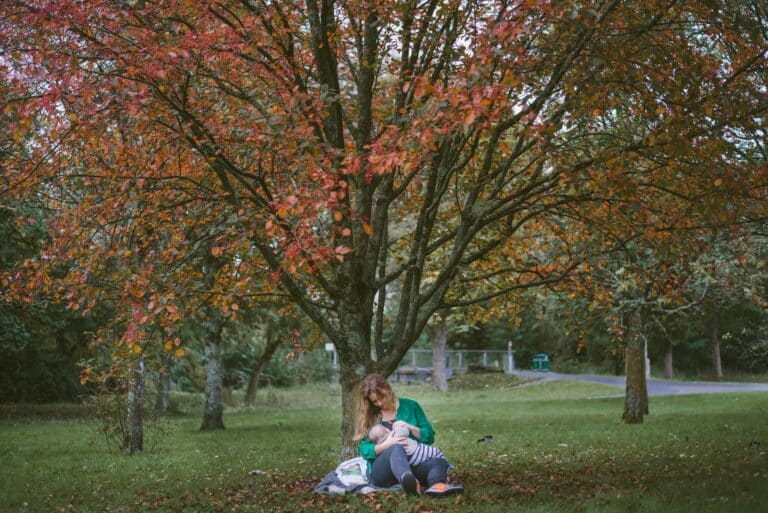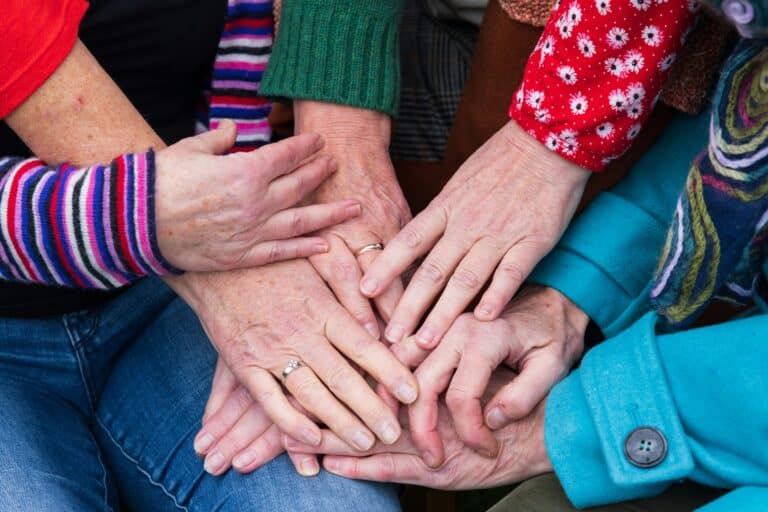A celebrant is an individual is who trained in the art of ceremony. They can curate or convene ceremonies across the lifecycle, often focused on traditional rites of passage such as birth, marriage and death. Yet, there is a growing movement of celebrants who are helping people recognize the less visible moments of change and transition, such as divorce, pregnancy loss, and healing journeys.
That’s where Be Ceremonial comes in. We designed a platform that empowers and inspires you with rituals that span the lifecycle, with a focus on the seemingly invisible moments. Moments like Organ Transplant, Menopause, and Pet Loss.
The Celebrant Foundation & Institute states, “The need for celebrants is on the rise. Recent Pew Studies reveal that a growing number of people aren’t connected to a specific religion, and many are not religious at all. Celebrants offer an alternative, giving people of all backgrounds, traditions, cultures, and faiths the opportunity to create ceremonies that best reflect their beliefs and ideals.”
As more and more people recognize the transformative impact of rituals on our mental, emotional, and spiritual wellbeing, and an increasing desire to navigate major life milestones, professions such as celebrants and death doulas are on the rise.

“One of the things I have noticed is that while there’s a real craving for ritual and ceremony in our fast-paced modern world, most people are often unsure of where to start or how to begin,” explains Megan Sheldon, co-founder of Be Ceremonial and certified Life-Cycle Celebrant who has been crafting and curating ceremonies for over a decade.
“There is a growing movement towards reconnecting with these timeless traditions, and at the heart of this movement are celebrants.”
Celebrants undergo specialized training and certification to design and officiate ceremonies and rituals. What sets them apart from other officiants is their expertise in the art of ceremony creation, enabling them to customize and tailor each ceremony to suit their client’s unique needs.
The History of Celebrancy
Celebrants have a rich history that dates back centuries. One thing that remains the same today is their unique ability to weave people’s unique stories into the fabric of the ceremony. In ancient times, communities had dedicated individuals who led rituals and ceremonies, bridging the gap between the mundane and the sacred.
Over time, the role of celebrants evolved, adapting to various cultural and religious practices. Today, celebrants continue this tradition, guiding us as we navigate life’s milestones with grace, purpose, and authenticity.
Celebrancy as a profession was founded in Australia in 1973 with a vision of authorizing people to officiate secular ceremonies for non-church people. In Canada and beyond, there is a growing humanist movement with humanist officiants on the rise. Humanist ceremonies are curated and personalized for each individual and occasion, reflecting unique wishes and preferences. A humanist ceremony can be held wherever you want — in your home, in the park, in a community space, or somewhere else that is special to you.
4 Reasons Why You Need a Celebrant
- Finding meaning through ceremonies: In our fast-paced and often fragmented world, we sometimes find ourselves disconnected from our roots, traditions, and the natural rhythms of life. Celebrants help us reconnect with the power of rituals and facilitate a deeper connection to ourselves, our relationships, our milestones, and the world we inhabit.
- Emotional support & guidance: Life’s significant moments can be emotionally charged and overwhelming. Celebrants provide not only ceremonial expertise but also emotional support and guidance during times of joy, grief, and transition. Through creating meaningful ceremonies, celebrants create a safe space for individuals and their communities to express their emotions while moving through times of change with attention and intention.
- Personalization & authenticity: Infusing rituals, traditions and storytelling, celebrants’ personalized approach ensures that both visible and invisible moments and milestones are acknowledged in a way that resonates deeply with the individuals involved.
- Reimagining the role of ritual in modern life: It is totally possible to be ceremonial while being secular and non-religious. For example, at Be Ceremonial, we have researched, crafted and curated hundreds of secular and universal rituals to choose from, while being mindful of cultural appropriation. Our rituals are descriptive, not prescriptive, meaning you can add your own spiritual, religious or cultural traditions to whatever rituals you select.
Some Celebrants in our Village!
Now that we’ve covered the benefits of having a celebrant, here are some of our celebrant friends who we love to support and recommend:
- Seeking Ceremony: Our sister-organization offers personalized celebrant services with a focus on the seemingly invisible moments in life, such as divorces, health challenges, moving homes, and death anniversaries.
- We plan most of our Celebration of Life ceremonies with the support of Christina Andreola of New Narrative Events, and while she’s located in Vancouver, BC she has supported ceremonies around the world with technology.
- Emily Bootle with DeathcareBC is a phenomenal celebrant and end of life ceremonialist, with a focus on pregnancy loss, graveside services, and celebrations of life.
- Kate Irving is a death doula, life-scribe and ceremonialist in Victoria BC. Her mission is to ease transitions for the dying and the living with ritual and ceremony.
- Tracey Swainson creates space for women who feel called to bring an emotional and sacred tending to their grief, loss, and life transitions made from the decisions, choices, and circumstances of motherhood.
- Nina Guertin is a trained End-of Life / Death Doula, a trained and certified Interfaith Spiritual Director, a Grief Support Specialist, Ritualist / Celebrant, and an Angel Artist.
- Patti Koeslag is a Certified Life-Cycle Celebrant with Thresholds of Life in Ontario.
Curious to learn more?
If you’re interested in exploring the path of a celebrant, try creating your own ceremony using the Be Ceremonial App. Start by marking your own moments of change and times of transition with intention and meaning, and once you have built up those ritual muscles, you can start crafting and curating ceremonies for others.

Our recently launched Be Ceremonial Village is a place for members to learn, share and connect with us, with each other, and with their own ritual practice! You’ll have the opportunity to engage with and learn from celebrants and like-minded individuals as part of a tight-knit online community. We have an Introduction to Ceremony course, we host events and gatherings, and our community will respond and support you in your journey to becoming more ceremonial.
Simply download the Be Ceremonial App and start a subscription to become part of our Village. We would love to see you there!




